Parent Information
Year Level Information - Year Three
Please click here for the Year 3 Welcome Newsletter.
-
Literacy
Our Literacy program consists of many facets including word study, spelling, writing, comprehension and guided reading. During our guided reading sessions the children are placed into differentiated groups to complete a variety of activities and have the chance to read a novel with their group and with a teacher. Our writing sessions focus on the various genres such as Persuasive text, Recount, Information Reports and Narrative. We also look at the various poetry styles including Haiku, Cinquain and Alliteration.
Numeracy
During our Numeracy sessions the children are placed into differentiated groups to cater for their specific needs. These sessions focus on a great deal of number work and problem solving. We also cover several applied numeracy topics such as time, money, volume, mass, area etc. We will also be focusing on a different times table fortnightly. During class time we will conduct several quizzes and play games based on the times table focus for the week.
-
At the beginning of each year, co-ordinators and teachers decide the homework expectations for the year level in accordance with the Department of Education & Training (DET) homework guidelines and notify parents.
See also Homework Guidelines.
-
In order to write with pen at Beaumaris North Primary School, students require a valid permit or licence. It is expected that students who have been learning Victorian Modern Cursive Handwriting in Prep, 1 & 2 (Learner Permit) will obtain a ‘Joining Licence’ during the second semester of Year 3 (Probationary Licence).
The students focus on letter formation (especially entry and exit strokes in readiness for joining), various joining techniques, writing fluency and precision.
A Joining Licence is a small laminated card made by the teachers, containing the student’s photo and school details.
Once students gain their ‘Joining Licence’ they work towards their ‘Pen Licence’ (Full Licence) in Year 4.
See Pen Licence.
-
Units of Inquiry - Year Three
WHO WE ARE WHERE WE ARE IN PLACE AND TIME HOW WE EXPRESS OURSELVES HOW THE WORLD WORKS HOW WE ORGANISE OURSELVES SHARING THE PLANET CENTRAL IDEA
Positive relationships contribute to a harmonious community
CENTRAL IDEA
Cultures change over time
CENTRAL IDEA
Effective communication skills facilitate the way people present information and ideas
CENTRAL IDEA
Humans are driven to imagine construct and inventCENTRAL IDEA
Communities are organised differently
CENTRAL IDEA
Survival of a species is dependent on its environmental conditionsCONCEPTS
Responsibility
Reflection
Perspective
CONCEPTS
Change
Perspective
CONCEPTS
Connection
Form
Function
CONCEPTS
Function Causation Connection
CONCEPTS
Form
Function
Connection
CONCEPTS
Responsibility Causation
LINES OF INQUIRY
- The way we interact with each other
- Different kinds of behaviour
- Being tolerant of others
- The need for rules
- The way rules are enforced in the community
LINES OF INQUIRY
- The importance of country and place to Aboriginal peoples
- Stories, artifacts and histories of Aboriginal and Torres Strait Islander Culture
- Impact of settlement on the Aboriginal community
LINES OF INQUIRY
- Communication skills
- The way we can improve our communication skills to express our ideas
- The ways in which we can express our creativity through different forms of communication
LINES OF INQUIRY
- Reasons for inventions
- The design process
- Impact of new inventions
LINES OF INQUIRY
- Different communities
- The way these communities function
- The way communities depend on each other
LINES OF INQUIRY
- Living and non-living things
- The differences between living, once living and products of living things
- Species in danger of becoming extinct
- Factors affecting the survival of some species
LEARNER PROFILE
Balanced
Principled
LEARNER PROFILE
Open-mindedLEARNER PROFILE
Communicator
LEARNER PROFILE
Inquirers
Risk-taker
LEARNER PROFILE
Knowledgeable
LEARNER PROFILE
Caring
Thinker
You can assist your child with their studies by discussing relevant information at home. We are encouraging our students to take independent action in response to our Units of Inquiry. This may involve bringing to school any books, posters, etc., that may be of interest to the class. Please ensure all items are named.
Click here to find out more about the PYP and the six transdisciplinary themes.
-
Year Three children participate in a variety of incursions/excursions related to our Units of Inquiry, for example:
- Art Incursion
- Japanese Incursion
- Indigenous Culture Incursion
- Melbourne Zoo Excursion
- Resilience Program
Click here to find out more about our Excursions and Incursions procedure.
-
A significant feature of the Curriculum are our Specialist Programs which operate for all classes on a weekly basis; Japanese, The Arts – Music, Physical Education and The Arts – Visual Arts.
Specialist News
A ‘Specialist News’ update for Japanese, PE, Art, Music and Library will be provided each term (via Compass and the BNPS website). Click here to access Specialist News.
Japanese
In Japanese lessons, Year Three students:
- Are exposed to Japanese pronunciation, intonation and body language of native speakers of Japanese.
- Read short texts, talk about daily life and adapt language that they know to new contexts.
- Begin to collect information in Japanese (for example, from modified texts).
- Have the opportunity to exchange letters with Japanese primary school children.
- Continue to develop their language skills and understand Japanese culture through a variety of activities such as language games, origami, songs, cooking and Japanese video/DVD.
- Participate in a calligraphy contest (Semester 2).
- BNPS students participate in a Japanese incursion every two years (sushi making demonstration, Kendo Martial Art or Japanese Drumming).
For more information, see Specialist Programs – Japanese.
The Arts – Music
For more information, see Specialist Programs – Music.
Physical Education
For more information, see Specialist Programs – Physical Education.
The Arts – Visual Arts
For more information, see Specialist Programs – Art.
For daily procedures, communication, reporting and assessment and anything else you would like to know about Beaumaris North Primary School, please refer to our A – Z Parent Guide.

